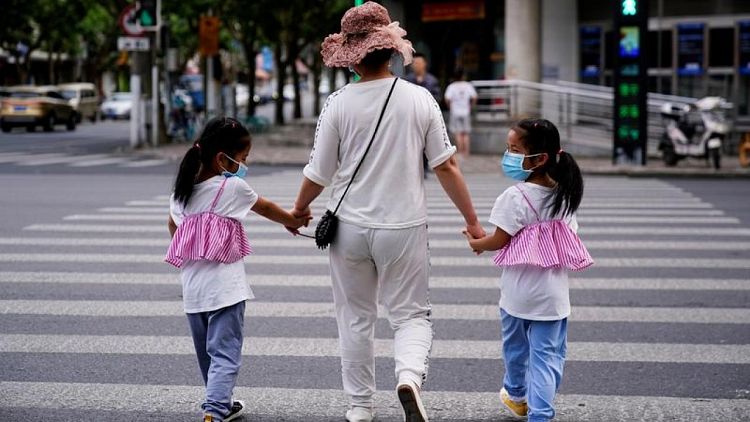By Yew Lun Tian
BEIJING - China will allow tax deductions for expenses on children under three as part of a major relaxation in child-bearing policy to stem a dramatic decline in births in the world's most populous country, an official document showed on Tuesday.
Beijing announced on May 31 that it would permit married couples to have up to three children, rather than just two.
It scrapped a decades-old one-child policy in 2016 in favour of a two-child limit to try and stave off risks to its economy from a rapidly ageing population. But that failed to yield a sustained jump in births given the high cost of raising children in Chinese cities, a challenge that persists to this day.
China had a fertility rate of just 1.3 children per woman in 2020, recent data showed, on a par with ageing societies like Japan and Italy and far short of the roughly 2.1 needed for replacement level.
The policy document, jointly adopted by ruling Communist Party and the State Council in June and released by official news agency Xinhua on Tuesday, spelt out specific measures to implement the three-child policy.
Parents who have a third child will no longer have to pay a fine, nor face punishment by their work units. The third child will no longer face restrictions in getting a household registration permit, known as hukou, or a place in schools.
Further, expenses incurred in taking care of children below the age of three will be tax-deductible. Local governments should take "due care" of parents with minors applying to rent public flats, according to the paper.
China will also standardise and regulate the use of assisted reproductive technology, it said.
In May, a once-in-a-decade census showed the population grew at its slowest rate during the last decade since the 1950s, to 1.41 billion. That heightened concerns that China would grow old before it gets wealthy as well as criticism that authorities had waited too long to tackle a drop-off in births.
